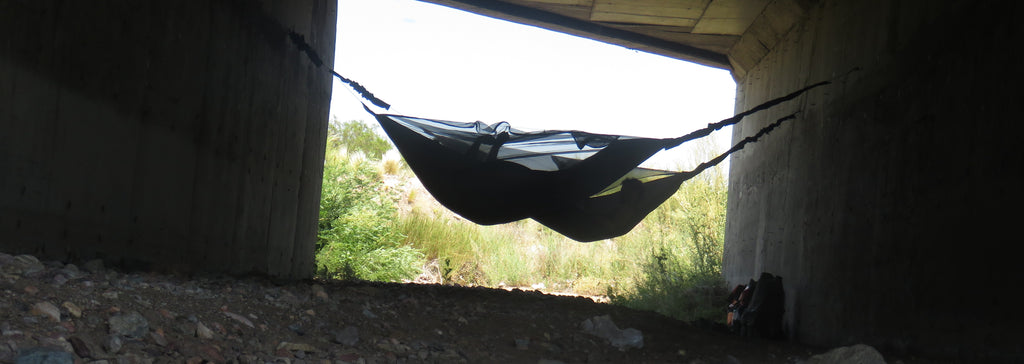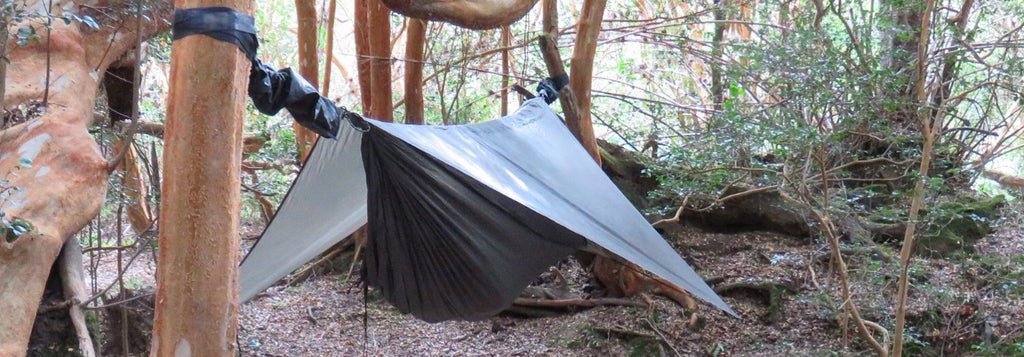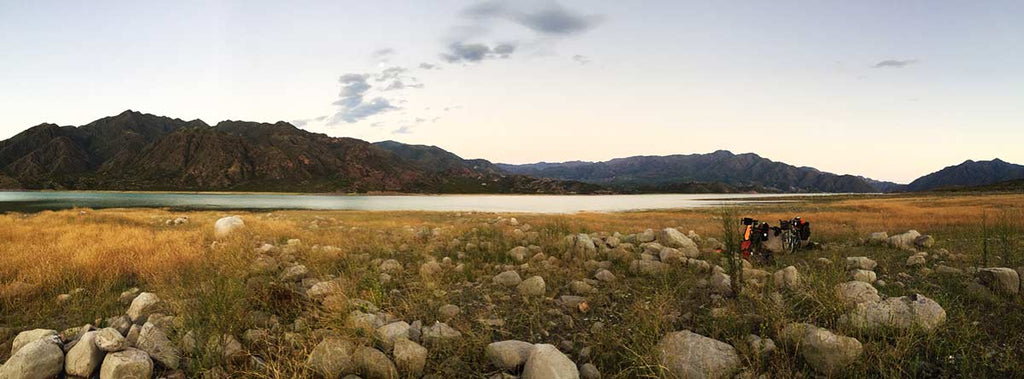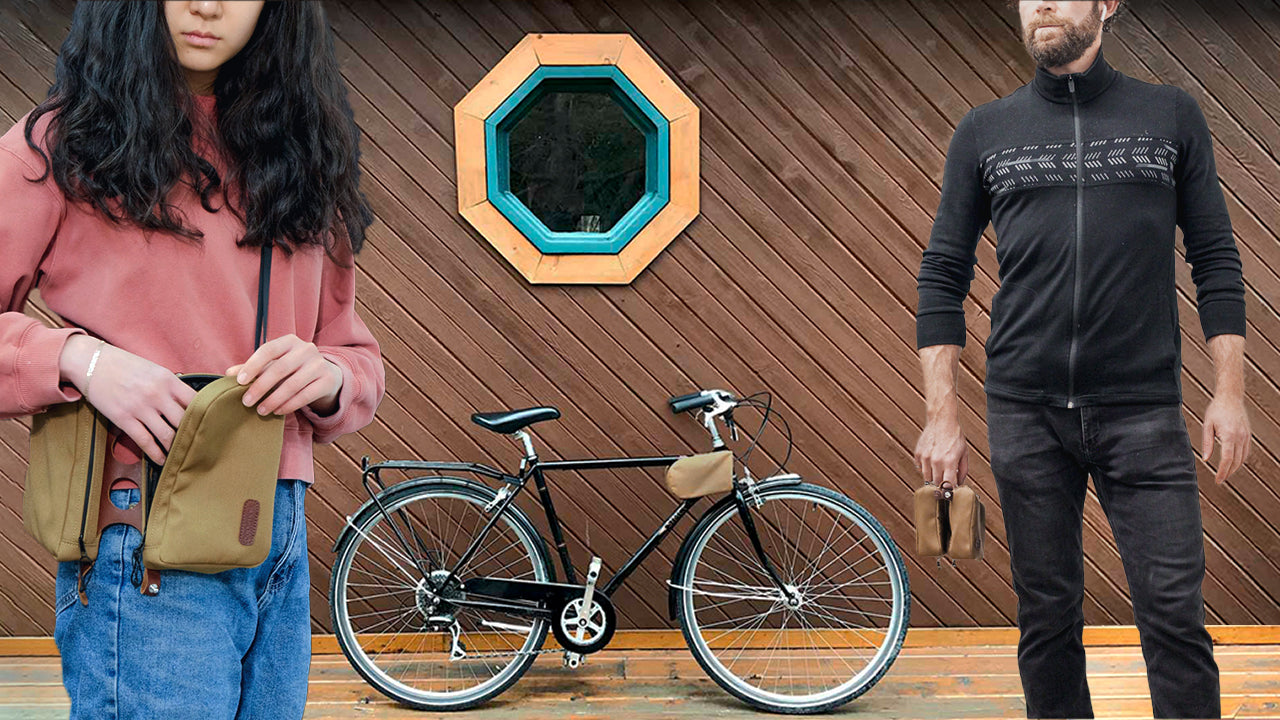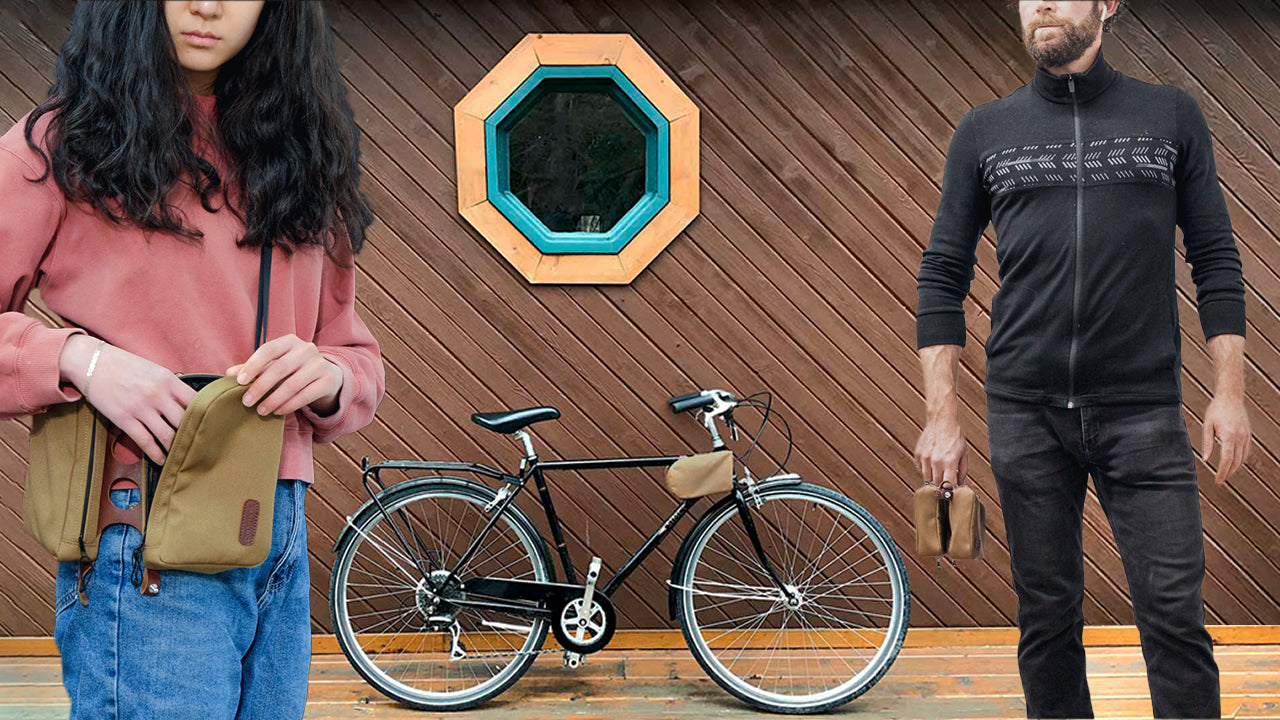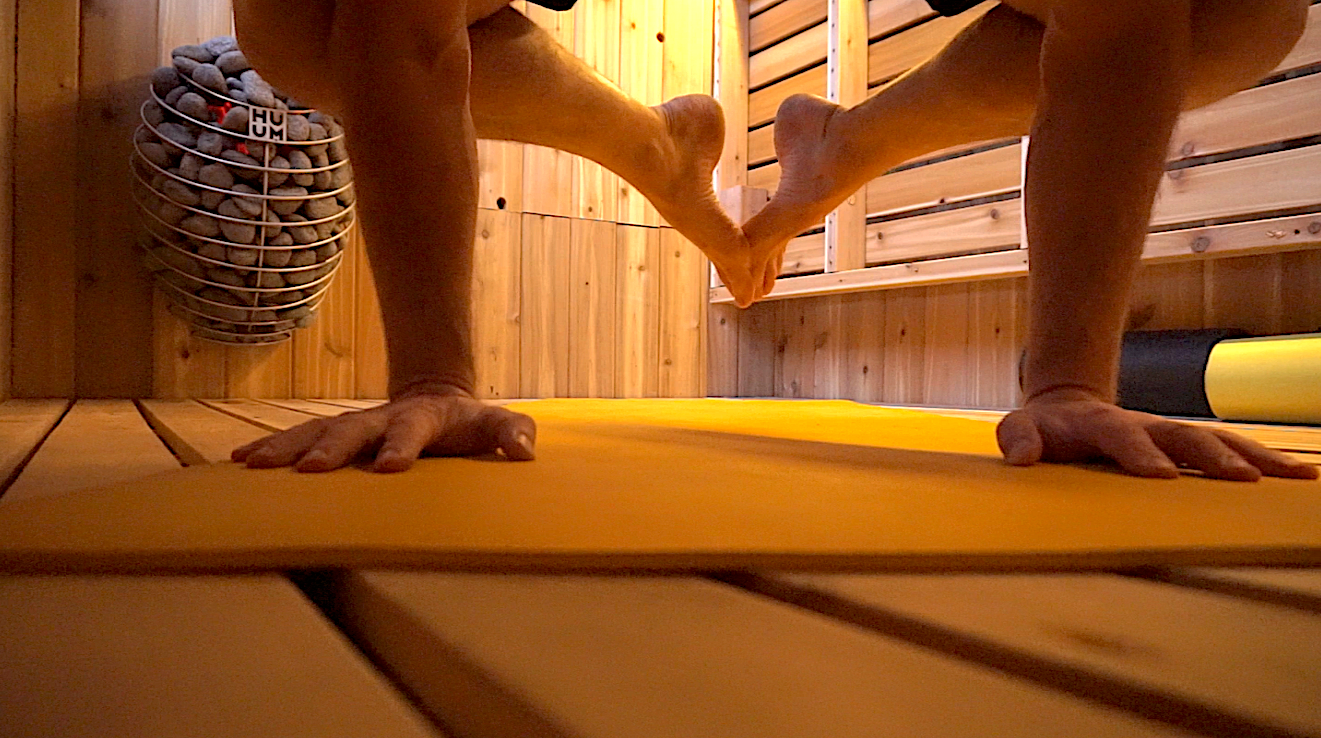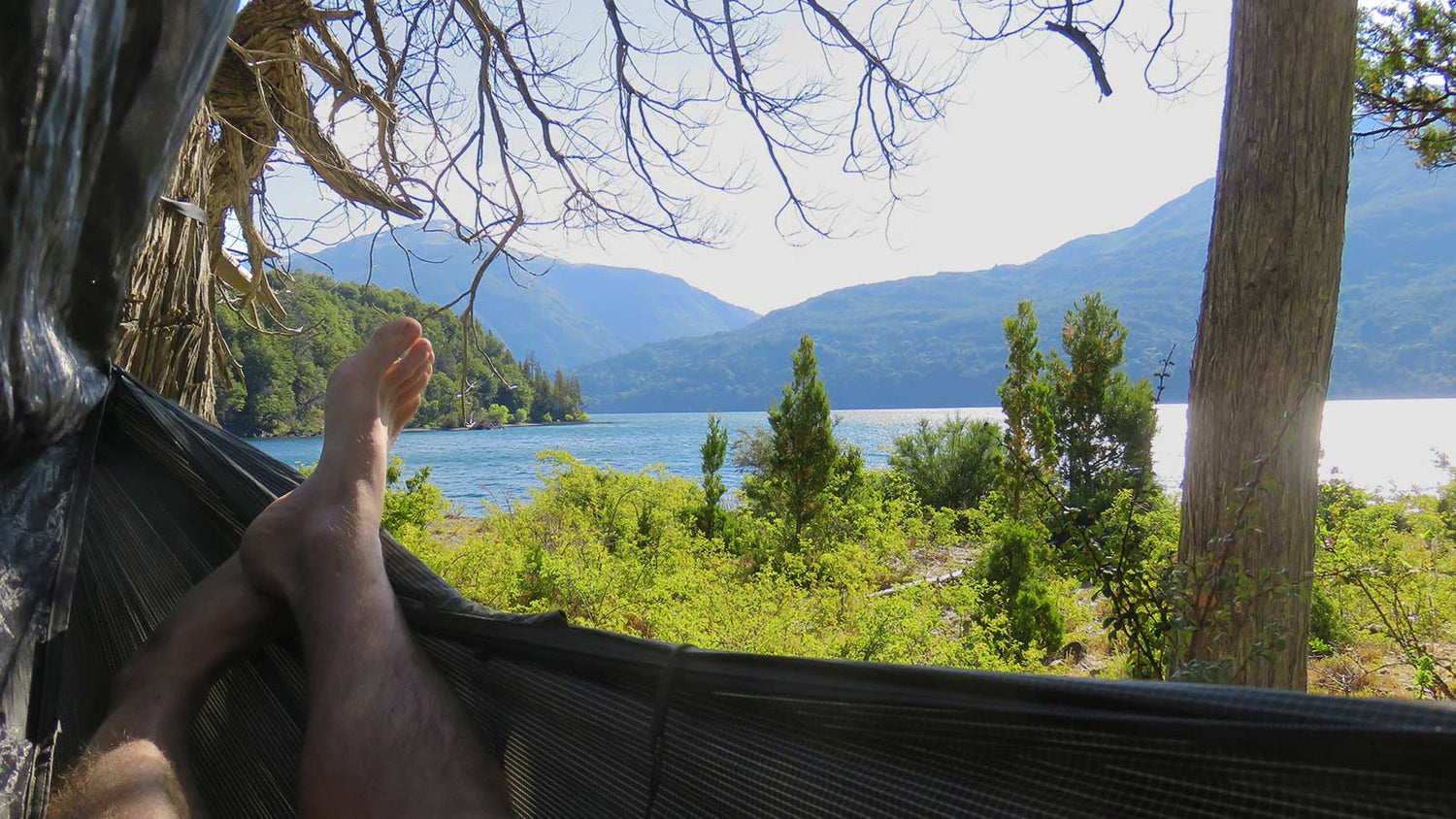
Bike touring: Where to sleep and how to find it
Bike touring is unique from other forms of travel in that you can't plan ahead in the same way. Depending on the terrain that day, mechanical problems or weather, you might do 30 km or you might do 200 km. This means you'll often be figuring out where to sleep on the fly. As you get familiar with the country or region you're traveling in, your estimation will become more accurate, but you have to be prepared for anything.
Not knowing where you're going to sleep that night can be a little stressful at first, so you'll want to have as many tools as possible at your disposal so you can relax and enjoy the ride. Remember that each country is different. When biking through Norway, Argentina, or Canada you can camp almost anywhere. In Europe there is much less forest and you'll need extra tools.
Although you may be inclined to line up for the convenience of a warm shower, electricity, and prepared food, getting away from all that has it's advantages. So, when we speak of "free," it's not really about the money, it's about breaking free from your day-to-day experience and having an adventure. That's why you bike tour, right?
Free Accommodation
Stealth Camping
Bike touring is an amazing way to get off the beaten path, away from cities, and into the great outdoors. Wild camping is the only way to do that. It’s my favourite, for sure, but can be challenging depending on where you are. In Argentina or Canada it’s easy to find, but in France or the Netherlands you’ll need all the help you can get, in order to find a wooded area appropriate for camping.
Leave no trace: Let's face it, you're probably trespassing, so have some respect. Depending on whether you’re using a hammock or a tent, you’ll either need trees or flat ground. In either case you’ll be looking for somewhere that you won't be seen or disturbing to anyone. To really be stealth, you want to leave no trace, so try not to disturb plants, and leave nothing behind.
Google Maps: is my number one tool for finding a sweet spot. Switching to satellite view helps you find wooded areas that might be appropriate. These might be in farmers fields, municipal parks, or off the sides of highways. Ideally you'll find a nice spot near a lake to have a swim and wake up in front of the water. Since you might not have cell reception in the country side, it’s a good idea to download your maps offline so you’ll always have the information you need.
Bring a battery: If you are relying on google maps for finding accommodation, you need to be conservative with your battery power and make sure you've always got a reserve.
Red light: Using a head lamp with a red light is a great way to not be seen while you're setting up your gear. Your eyes will adjust and you’ll be more stealthy.
Sleep well: Sleeping outside is great, but it can take a while to get used to the noises and early morning light. You’ll need all the sleep you can get, so I recommend using a sleeping mask and ear plugs. Many people haven't had a great experience with earplugs yet, but once you do, it's a game changer. Try ripping them in half to make them shorter. This way they'll stay in your ears comfortably, all night long.
Plan for the light: It might make sense to look for accommodation before the sun goes down so that you can see the burs, find wood, and find a flat spot for your tent more easily. Also, it may get cold when the sun goes down and you might want to get settled before that happens. On the other hand, if you're in a more populated area, you might want to wait until the sun has gone down so that no one will see you. It's hard to find flat spots for tents, but you might not have a choice. Be conscious of your surroundings and choose accordingly.
Park4night
This app is designed to help van touring peeps find a place to stay. It lets you know what sorts of resources are available at the spots (water, electric, toilets), as well as pictures of what the site looks like. This can be a great tool to scout locations before biking all the way over. For example, I can see ahead of time if there are trees for me to hang my hammock for the night.
One of my favourite spots from this app was with some friends in Portugal. We woke up on a pier on a river in the wine region all by ourselves and had a good morning stretch before hitting the road!
Warm Showers
This app is like couch surfing, but for cyclists who want to pay it forward. Friendly cyclists open up their homes and understand what it’s like to be on tour. You’ll share stories and get great tips about bike paths in the area, or places to see. It can also be convenient as these people may have tools and equipment to make repairs and tune up your ride. It’s free to use and operates on voluntary financial contributions.
Couch surfing
Stay for free in people's homes! This app has been around for a long time and often works well depending on where you are. Remember, these hosts aren’t always cyclists and won’t understand all the details. You might need to ask ahead of time about bike storage etc.
When searching for a host, be sure to check the “Last Login” & “Response Rate” metrics, helping you choose hosts that have been actively involved recently. There’s also a great feature where you can pre-write your request and easily paste it into several messages.
Be Friendly
You'd be surprised at how friendly and open people can be when they see that you're bike touring. They'll have respect for what you're doing and will want to help. This might some in the form of letting you take a shower at their place, camp on their property, or even sleep in their home. The only way they'll know you're looking for those things is if you interact with them. So, be open and friendly! Let people in on your adventure!
FB Groups
If you decide you want to spend longer than a couple of days in a city, FB groups for local housing can be a great way to connect with locals. Share your story on a cycling page or housing page and you’ll be surprised how hospitable people can be.
I posted on such a group in France and Max replied. "Where heading out for a drink, why don't you join us?" The next day, his message to read me .....

Paid Accommodation Options
Paid Camp Sites
Being in the wild can be great, but four days without a shower can get you down. In such a case, most countries have campsites all over the place that are relatively inexpensive. Remember, many campsites required you to bring your own toilet paper :)
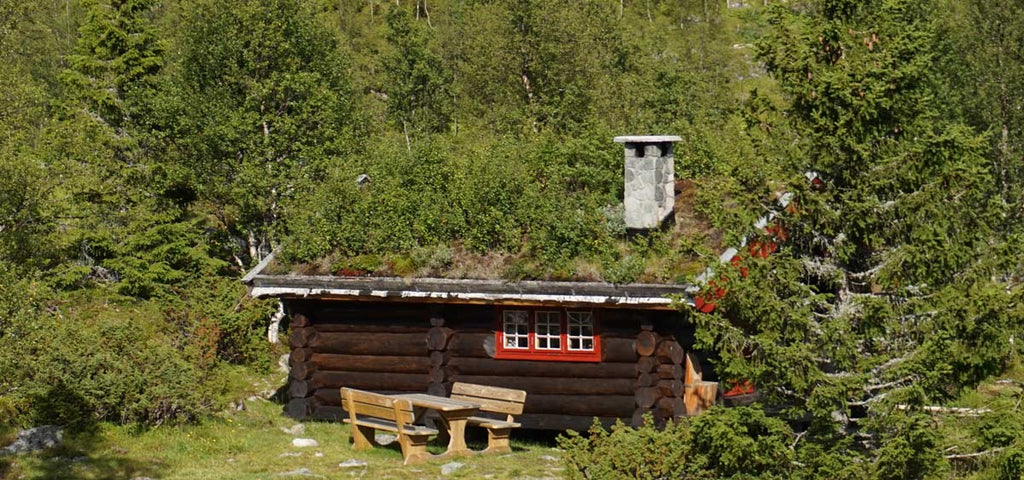
Airbnb
You may find you want to escape the rain, or spend time on a mattress. Airbnb is easy and available everywhere. It can also get pretty creative! We did a four day bike trail in Quebec and rented these teepees along the way.Hostel World app
Hostels offer low-cost accommodations to take a break, and socialize. I use the Hostel World App to scout options ranging around 15-45$ USD per night. In my experience, they’ve always had somewhere safe to store my bike.
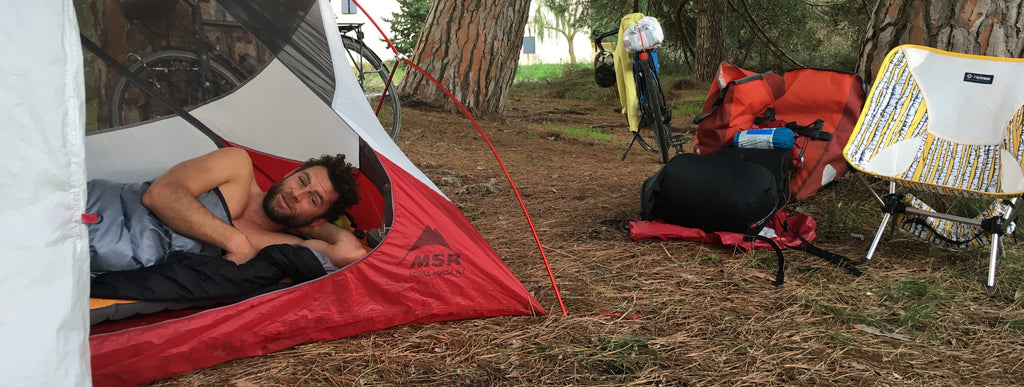
Booking.com
I use booking.com a lot to find hostels and cheap hotels. In fact I have a coupon code that can give you
Tools
To be able to use these tools, you're going to need 3 things; a smart phone, battery power, and data. Let's assume you have a phone already.
Battery Power
In the city we get pretty reckless with our power usage. To feel secure in your ability to find a place to sleep, you'll want to be conservative with your battery usage, and have a backup. It's always a shame to have to go back into civilization just to charge your phone, right?
Airplane mode should be used at all times. When you're in the countryside, your phone might use more juice as it searches for hard-to-find cell towers. It's always a good idea to have your maps and music downloaded offline so that you're not wasting extra power. Airplane mode also ensures that you're not getting disrupted by notifications while taking in the rustic view.
There are options for charging hubs, solar panels and so on, but the go-to is a battery pack. Depending on how remote I'm going, I'll bring either a 10,000 mAh or a 21,000 mAh battery pack. If you run out of battery, it means your battery pack isn't big enough.
You'll also need electricity for charging USB lights, Kindles and headphones. Having functional lights and navigation is a matter of safety and security, so you should take it seriously.
Data
To be able to navigate and find accommodation you're going to need data. If you're travelling in a foreign country, you'll need to get a prepaid SIM card. Back home you use Wifi most of the time, but you won't find much of that on a bike path. So don't be shy, get a data package that gives you the freedom to travel as you wish. This probably means more data than you'd have back home.
As you can see, there are tons of easy ways to find free or low-cost accommodations while on the road. You don't have to worry so much about planning in advance, and be more free to go with the flow. Having the right tools on hand means you can make decisions on the fly, say YES more often, and take in the adventure at it comes!
Enjoy the Ride!
Related Posts
The Gobagg: How to carry essentials on your bike and at your destination
The Gobagg is a super convenient cycling bag. It mounts on your frame and has a shoulder strap so yo
The GobaGG - Bicycle Frame Bag
The GobaGG just might be our most convenient cycling product yet. Take it with you on your bike and
Backyard Hot Yoga and HUUM Sauna
The design behind a personal hot yoga studio and HUUM sauna. Featuring a unique removable bench syst
Products
View all

